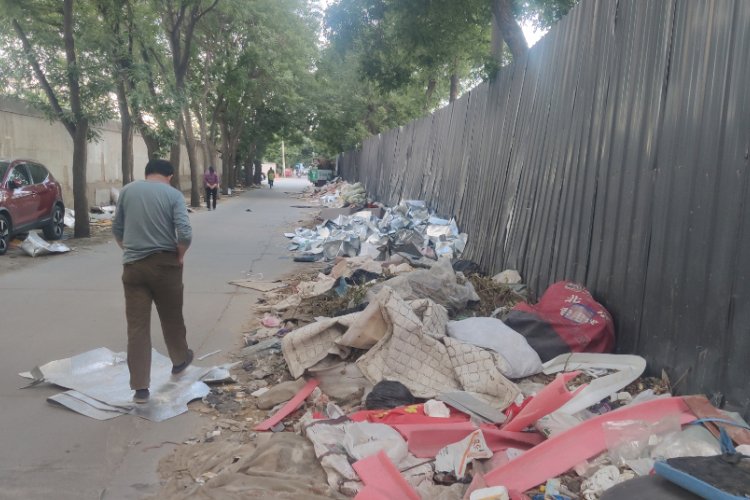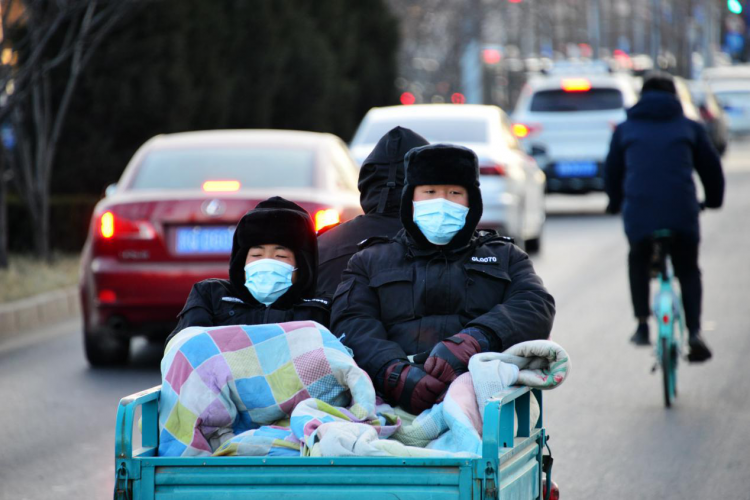Ruff Housing: The Plight of Pups in Beijing Markets
Cramped. Cold. Unkempt. Such are the surroundings for most Chinese dogs that wait to be sold in pet markets. Earlier this year, a public furor raged after the Beijing Morning Post ran a story about the dismal conditions at a dog market in Haidian. Irene Zhang, director of Animal Rescue Beijing (one of the city’s first dog shelters) readily admits the standards are improving at facilities like the Liyuan dog market in Tongzhou District. When she last visited in 2008, the market, which is the biggest of its kind in Beijing, consisted of nothing but open spaces where the dogs were left to lie on the floor. Today its canines sit in fairly clean cages, some of which even feature glass plates to shield them from winter weather.
However, Zhang says the ramshackle pet bazaar is still fatally unfit for man’s best friend. She takes issue with the facility’s excessive breeding practices, not to mention the amateur vendors lining the streets outside the market’s gate, who often offer up puppies for slaughter at dog meat restaurants. (Zhang took pains to emphasize that the vendors inside the market do not sell dogs for meat.)
“Those street vendors are actually farmers who live nearby,” Zhang told the Beijinger during a visit to the market last November. “Some of them even worked as dog butchers here years before. In my opinion, such pet markets should be closed.”
Below, Zhang and a host of other Chinese animal rights experts weigh in on what’s needed to bring the Beijing pet industry up to par.
“Currently there is no requirement on the space, staff qualification, or hygienic condition of puppy mills or pet stores. The government should adopt strict policies on pet dog breeding and selling, including the licensing of puppy mills and requiring vaccination certificates for rabies and other diseases. It’s even worse in a pet market, where anyone can pay a small entrance fee to sell his own dogs. That’s what’s happening in Liyuan.”
– Irene Zhang, Animal Rescue Beijing
“That adorable little puppy in the market probably came from a “puppy mill,” a breeding facility that raises dogs in constant confinement. That, and a lack of adequate veterinary care and socialization at these markets, often results in unhealthy animals. The public needs to understand the role they play in supporting this trade when they purchase these puppies.”
– Ashley Fruno, PETA Asia
“I would simply plead with potential buyers to go to one of the many dog and cat shelters in Beijing, who have healthy animals that are desperate for loving homes. It’s very simple – please don’t buy from pet shops, markets or street traders. They are the end of a horrible chain of cruelty that sees breeding bitches caged for life, birthing puppies twice a year like machines. Once their breeding days are over, they are thrown away. Many such miserable dogs are then caged in live animal markets and sold for meat.
– Jill Robinson, Animals Asia Foundation
Photo: Kyle Mullin
This article originally appeared on page 58 of the March issue of the Beijinger.
Related stories :
Comments
New comments are displayed first.Comments
![]() caitlinbellah
Submitted by Guest on Mon, 06/17/2013 - 02:09 Permalink
caitlinbellah
Submitted by Guest on Mon, 06/17/2013 - 02:09 Permalink
Re: Ruff Housing: The Plight of Pups in Beijing Markets
I completely understand where you're coming from. But what happens to these poor dogs from the puppy mills? Do they not deserve to be saved and brought into loving homes? I get it, you don't want to encourage these puppy mills, but I can't help but feel so sorry for these poor animals.
Validate your mobile phone number to post comments.






